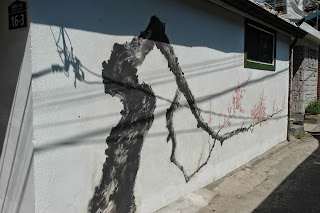Scandal related to Kake Gakuen, a school
corporation run by a close friend of Prime Minister Shinzo Abe, is spreading
wider. A popular magazine, Weekly Bunshun, reported on Thursday that Deputy
Secretary General of Liberal Democratic Party, Hakubun Shimomura, had received
secret donation from Kake Gakuen without reporting it to the government.
Shimomura is one of the closest allies of Abe, supporting Abe’s political
agenda including constitutional amendment. Political advance of Abe administration
looks like slowing down.
According to the report of Bunshun,
Shimomura’s supporters organization called Hakuyukai received ¥2 million from
Kake Gakuen. The donation was divided in two times for ¥1 million each. While
Political Funds Control Act required each politician to report every donation
with value of ¥200 thousand or more, Hakuyukai did not report those two
donations. The donation is doubted as having been illegal.
In his press conference on Thusday,
Shimomura admitted that Hakuyukai received donation amounting ¥2 million in
2013 and 2014, when he had been Minister of Education, Culture, Sports, Science
and Technology, or MEXT, in charge of selecting the place for new veterinary school.
Shimomura argued that the donation was not illegal, because it was made by
eleven organizations or individuals and each of them was less than ¥200
thousand. But he did not make clear about whether Kake Gakuen was included in
those organizations.
As Deputy Secretary General of LDP and a
lawmaker elected from Tokyo, Shimomura is in charge of the election of Tokyo
Metropolitan Assembly next Sunday. In a sweeping advance of Tokyoite First led
by Governor Yuriko Koike, it is a great damage for LDP candidates that another
negative scandal of an LDP leader appeared a few days before the voting day. Shimomura
boasted that he would file a lawsuit against Bunshun as an illegal violation of
election campaign.
Consecutive scandal is spoiling political
power of Abe administration. Kake scandal was the greatest issue at the last
moment of the Ordinary Session of the Diet, in which the opposite parties
accused Abe’s involvement in the selection of Kake Gakuen for establishing new
veterinary school in Imabari, Ehime. Minister of Defense, Tomomi Inada, another
close ally of Abe, made false statement in the election campaign in Tokyo, in
which she asked support representing Japan Self-defense Force that political
activity was strictly limited. Voices are rising from LDP that require early
reshuffle of Abe Cabinet, which may affect the fortune of Abe administration.

















